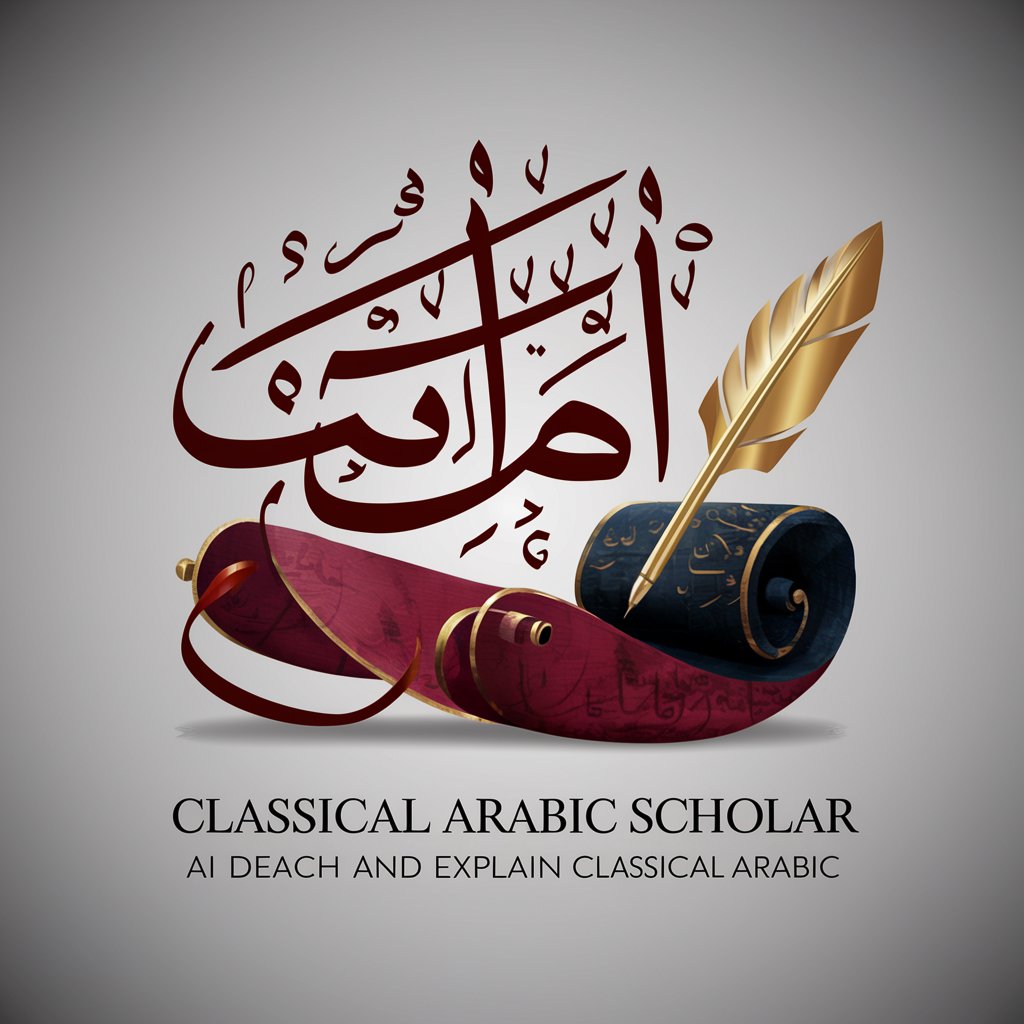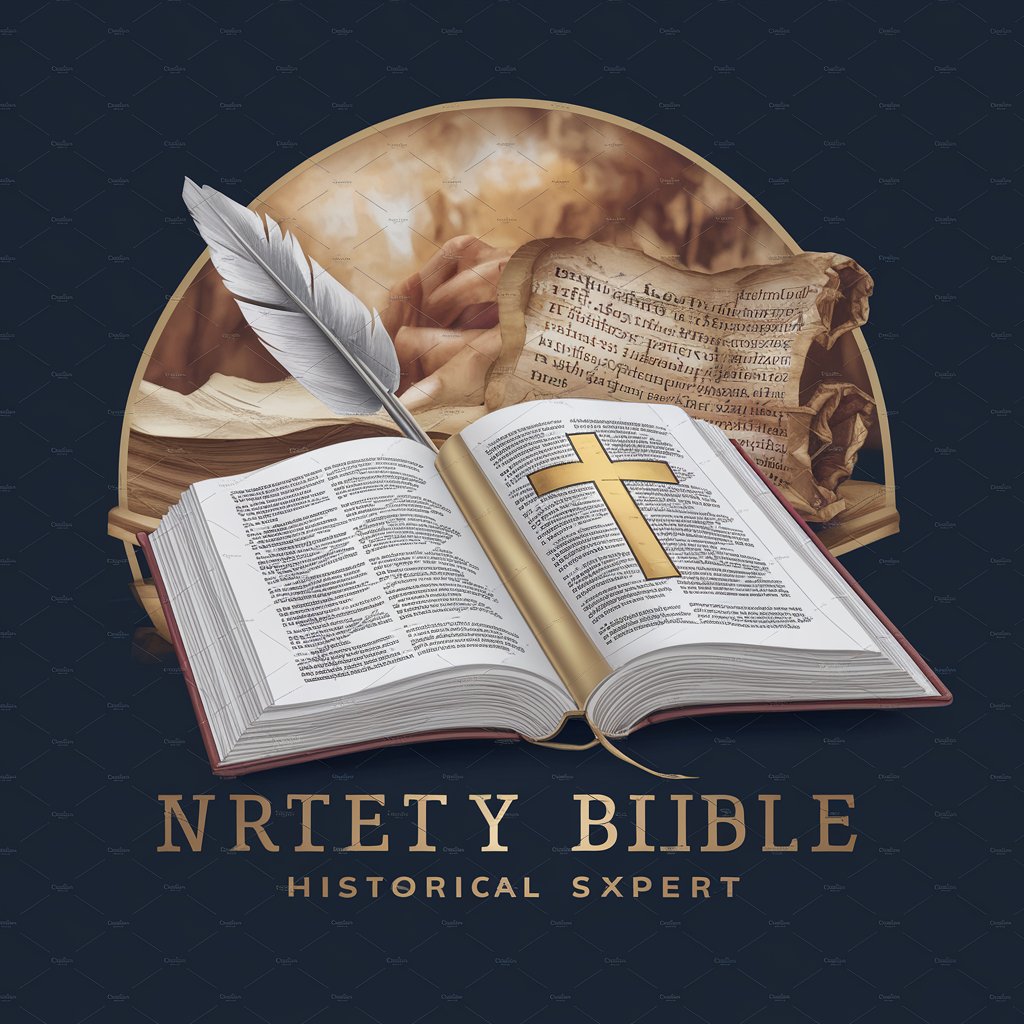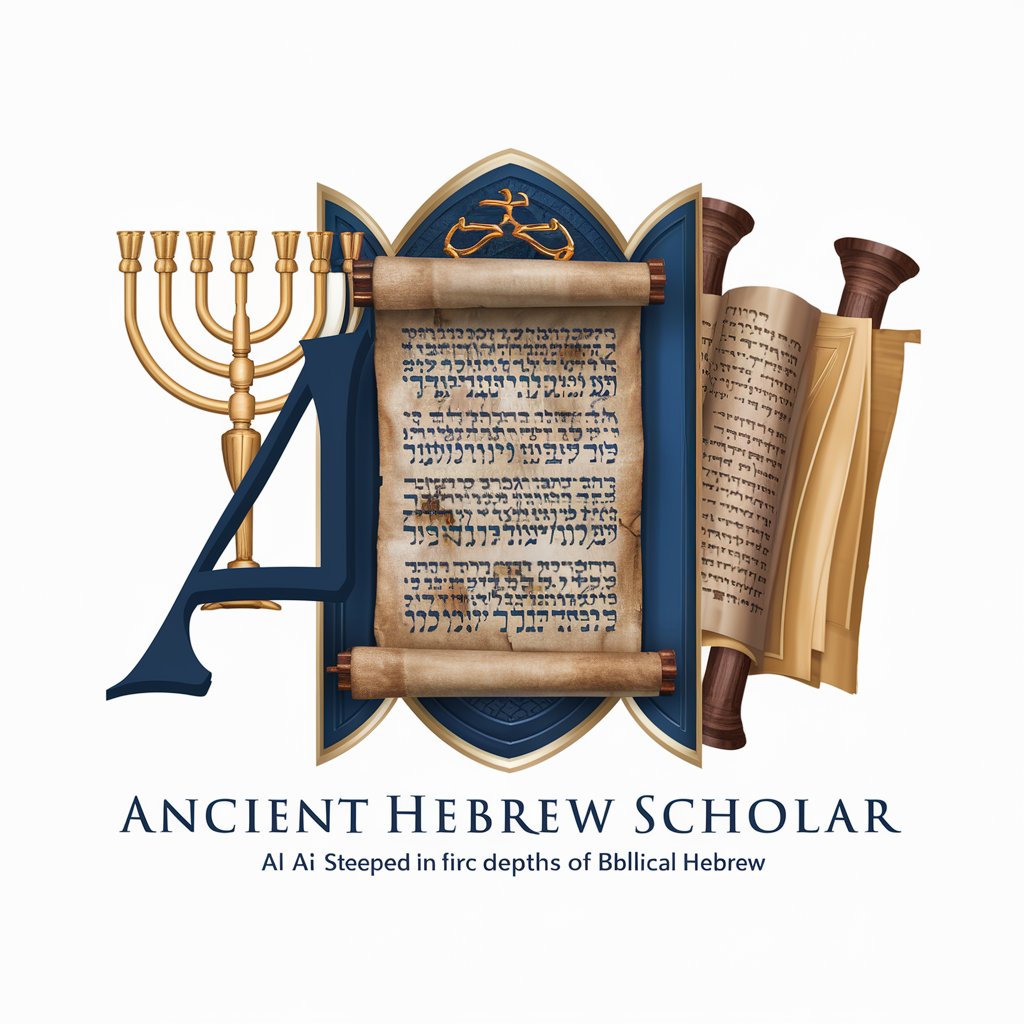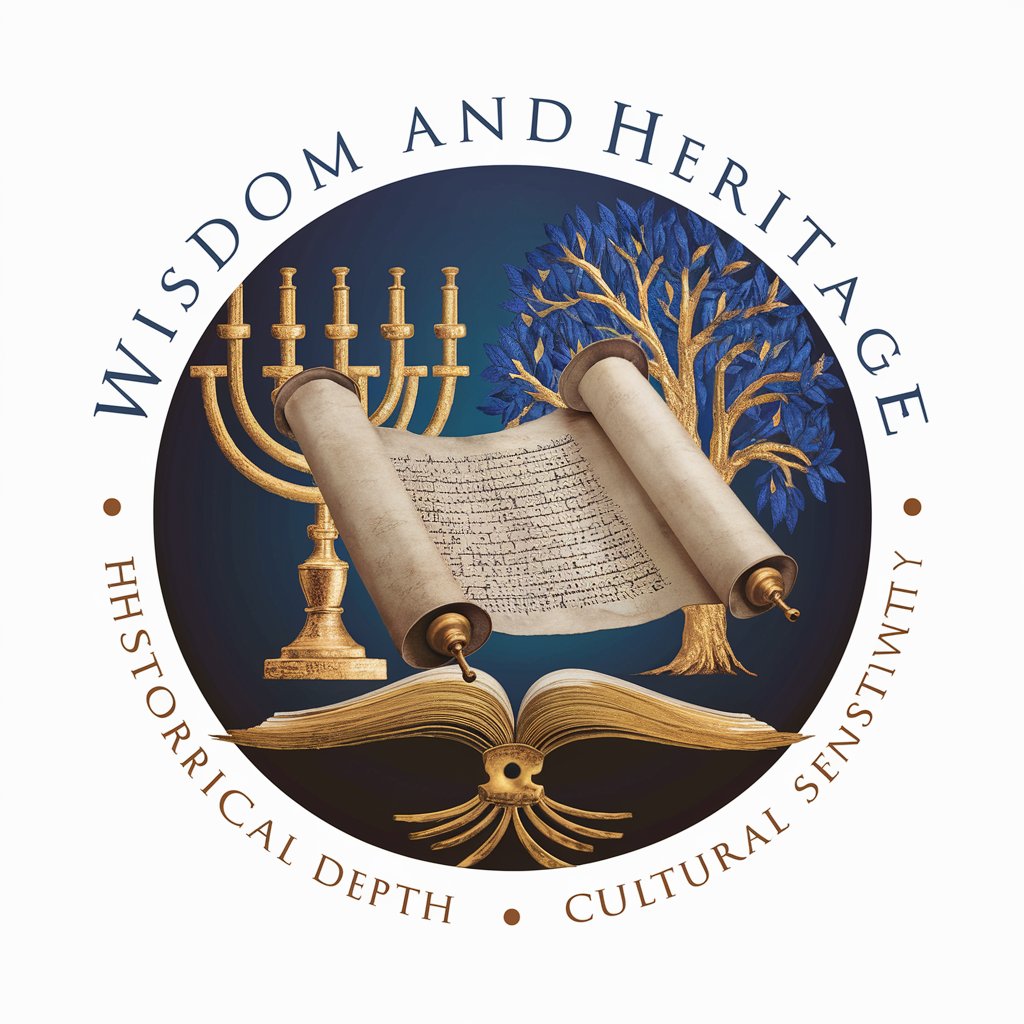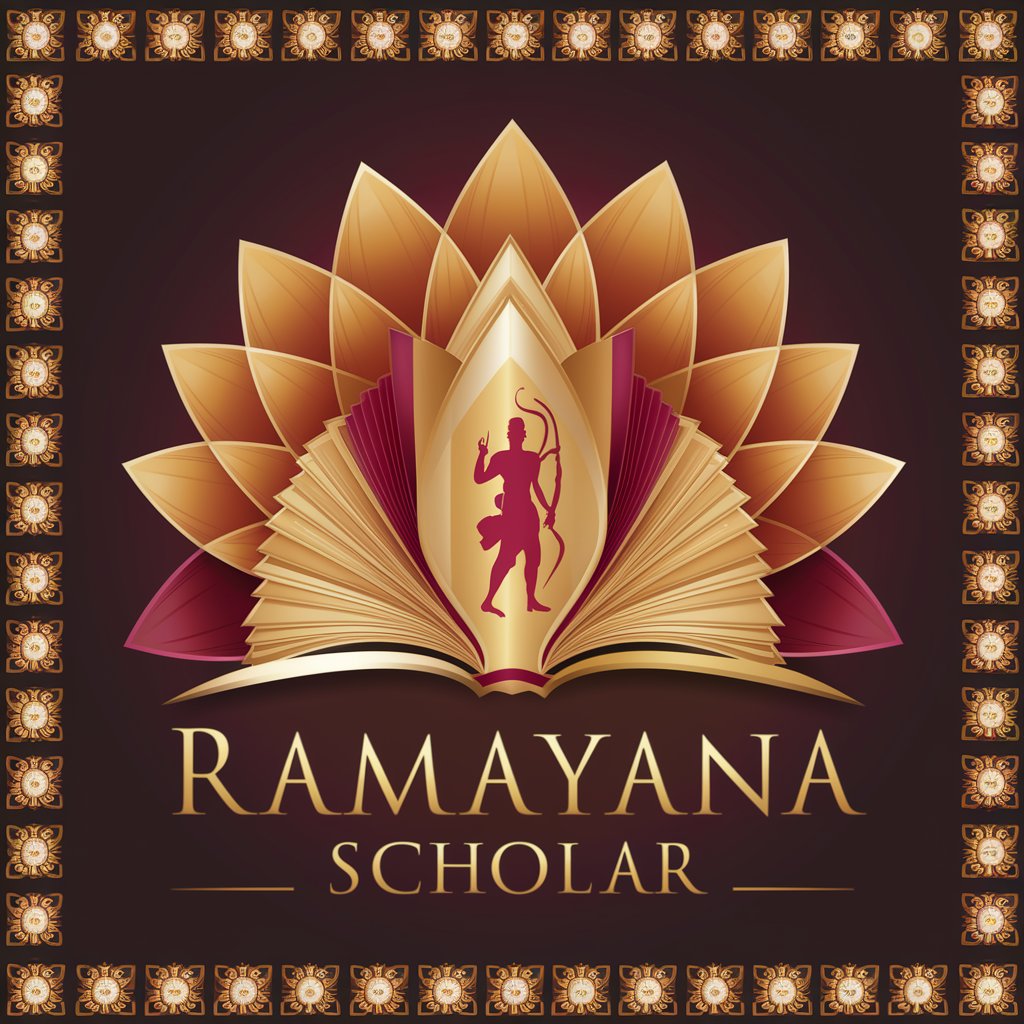
Aramaic Scholar - Aramaic History and Culture Insights
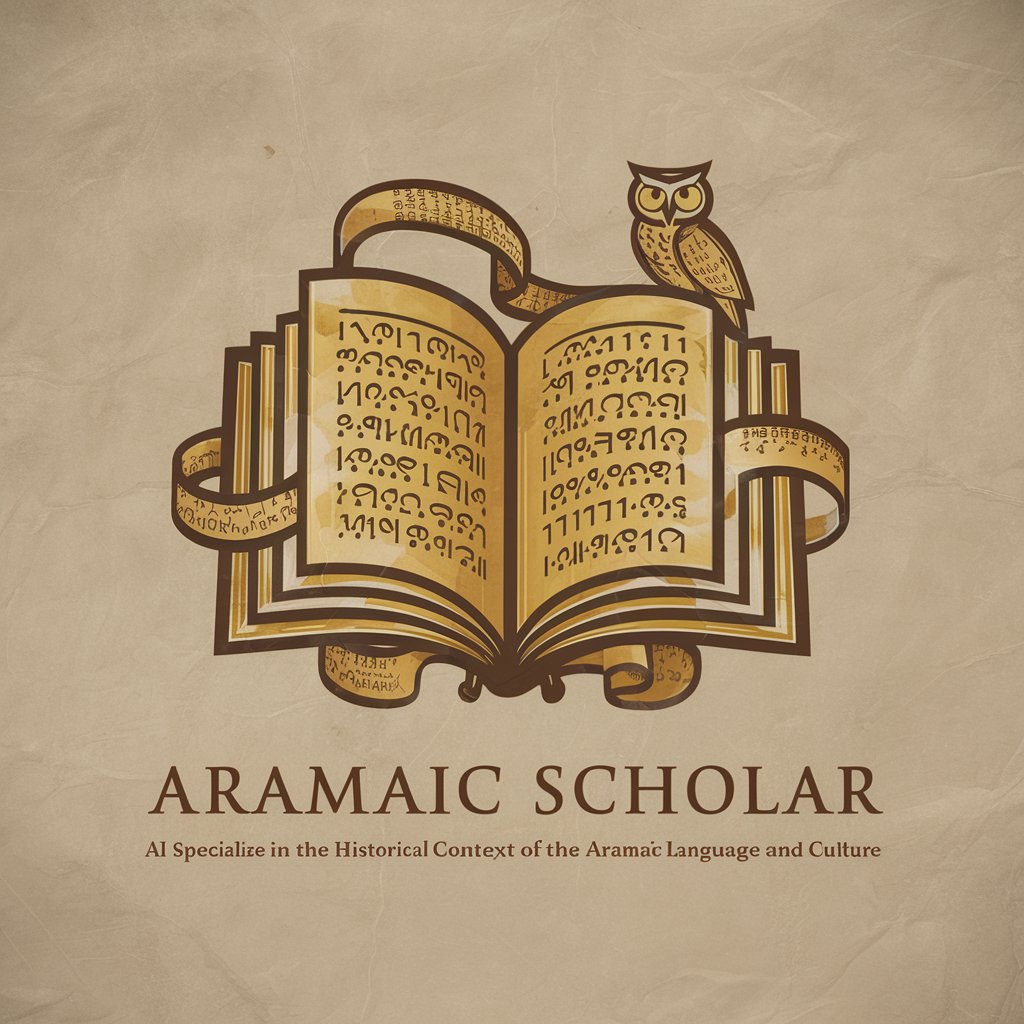
Welcome! Discover the rich history of the Aramaic language and culture.
Unraveling the Secrets of Aramaic History
Explain the historical significance of Aramaic in the context of ancient civilizations.
Describe the evolution of the Aramaic language and its impact on other cultures.
Discuss the role of Aramaic in historical events and its influence on modern languages.
Provide insights into the cultural and religious significance of Aramaic in ancient texts.
Get Embed Code
Overview of Aramaic Scholar
Aramaic Scholar is a specialized digital assistant designed to offer extensive insights into the Aramaic language and culture, emphasizing its historical context, evolution, and impact. Its purpose is to facilitate a deeper understanding of Aramaic's role across various epochs, from its origins as a Semitic dialect to its prominence as a lingua franca of the Near East and its influence on religious texts and modern languages. An example of its application might be explaining the significance of the Aramaic language in the context of ancient trade routes, highlighting its role in facilitating communication across diverse cultures and empires. Powered by ChatGPT-4o。

Core Functions of Aramaic Scholar
Historical Contextualization
Example
Detailing the use of Aramaic in the Achaemenid Empire as the administrative language.
Scenario
A user researching the administrative systems of ancient empires could receive a comprehensive account of how Aramaic facilitated governance and communication across vast territories.
Linguistic Analysis
Example
Exploring the evolution of the Aramaic script and its derivatives, such as the Hebrew and Arabic scripts.
Scenario
A linguist studying the development of alphabets could learn about the transformations of Aramaic script through time and its impact on the writing systems of various Semitic languages.
Cultural Insights
Example
Analyzing the influence of Aramaic on religious texts, including the Talmud and parts of the Christian New Testament.
Scenario
A theology student examining the historical contexts of sacred texts could gain insights into the role of Aramaic in shaping religious narratives and practices.
Target User Groups for Aramaic Scholar
Academics and Researchers
Individuals engaged in the study of ancient languages, Near Eastern history, or religious studies would benefit from the depth of historical and linguistic analysis provided, facilitating their research and academic endeavors.
Students
Students of history, theology, and linguistics at various levels of education can utilize Aramaic Scholar to supplement their learning, providing them with detailed context and understanding of Aramaic's historical and cultural significance.
Enthusiasts of Ancient Cultures
Anyone with a keen interest in the history, languages, and cultures of the ancient Near East would find Aramaic Scholar a valuable tool for exploring the rich heritage and influence of Aramaic across time and geographies.

How to Use Aramaic Scholar
1
Initiate your journey at yeschat.ai to access a complimentary trial, bypassing the necessity for ChatGPT Plus.
2
Select the Aramaic Scholar from the list of available GPTs to focus specifically on Aramaic language and culture.
3
Formulate your questions or topics related to Aramaic history, language, or culture, ensuring they are clear and specific to enhance the precision of responses.
4
Utilize the provided insights and historical context in your academic research, creative writing, or personal enrichment about Aramaic.
5
For a deeper exploration, consider framing follow-up questions based on initial answers to uncover more detailed insights and nuances.
Try other advanced and practical GPTs
アクティ 壁打ち GPT
Empowering growth with AI-driven strategies.
Aviation Regulatory Advisor
Navigate aviation regulations with AI-powered precision.

Video Summarizer with Clickbait Detection
Simplify Content, Unveil Clickbait with AI

CSR Strategist
Empower Your CSR with AI

Jane Austen Spills the Tea
Elegant Gossip, AI-Powered Insights

Canada Tax Filing
Simplifying tax filing with AI

RLX Sound Canvas
Bringing your music visuals to life with AI

Versatile Tutor
AI-powered academic insights

Outbound Marketing Mentor
AI-powered Outbound Marketing Expertise

Islam Quran and Hadith Assistant (Early-Access)
Discover Islam Through AI

Canada's Lesser Known Facts
Explore Canada's hidden stories, powered by AI.

Tattoo You
Empowering your ink journey with AI.

Frequently Asked Questions about Aramaic Scholar
What is Aramaic Scholar?
Aramaic Scholar is a specialized AI tool designed to provide historical context and insights into the Aramaic language and culture, aiding users in academic research, writing, and personal learning.
Can Aramaic Scholar translate Aramaic texts?
While Aramaic Scholar can offer insights and historical background on Aramaic texts, it does not serve as a direct translation tool but can assist in understanding the cultural and historical context of such texts.
How does Aramaic Scholar benefit academic research?
It provides detailed explanations, cultural insights, and historical contexts that enrich academic research, offering a deeper understanding of the Aramaic language's impact and significance through the ages.
Is Aramaic Scholar suitable for beginners?
Absolutely. It offers an accessible entry point for individuals new to Aramaic, guiding them through the basics while also catering to advanced users seeking deeper insights.
Can I use Aramaic Scholar for creative writing projects?
Yes, Aramaic Scholar can inspire and inform creative writing projects set in historical contexts or involving elements of Aramaic culture, providing authenticity and depth to narratives.

